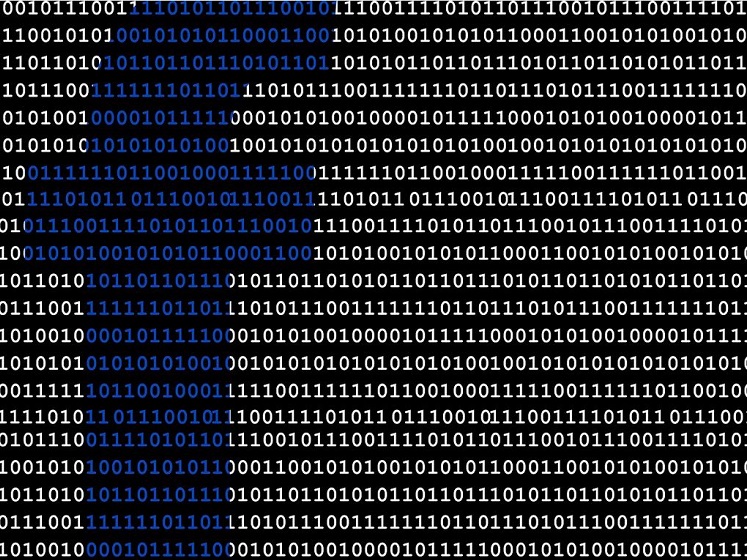 Turkey regularly blocks non-heterosexual websites, the Apple store prohibits overtly sexual material and Facebook has a problem with female nipples. The regulation of sexual content – or content that is deemed to be of sexual nature – is a regular feature of internet governance and self-regulation of platforms and apps. In this post Lukasz Szulc, LSE Marie Curie Individual Fellow focussing on cultural studies of media and identity, analyses the extensive regulation of intimacy online and argues for less regulation in this domain.
Turkey regularly blocks non-heterosexual websites, the Apple store prohibits overtly sexual material and Facebook has a problem with female nipples. The regulation of sexual content – or content that is deemed to be of sexual nature – is a regular feature of internet governance and self-regulation of platforms and apps. In this post Lukasz Szulc, LSE Marie Curie Individual Fellow focussing on cultural studies of media and identity, analyses the extensive regulation of intimacy online and argues for less regulation in this domain.
Media representations related to sexuality are heavily regulated around the world. Sometimes, their regulation reflects shared social values, such as the general disapproval of child pornography. Usually, however, they reflect prudish moral standards, which create arbitrary divisions between ‘good’ and ‘bad’ sexuality, and result in the discrimination against particularly women and LGBTIs, that is, Lesbian, Gay, Bisexual, Transgender and Intersex people. While regulations have been well established, if still contested, in the realm of traditional media, the internet becomes a new laboratory, at times a battlefield, for the regulation and self-regulation of intimacy.
The Sex Hierarchy
Before I move on to discuss some cases of this intimate (self-)regulation online, let me briefly introduce Gayle Rubin’s idea of the sex hierarchy, which will be useful to unmask certain judgements about ‘acceptable’ and ‘unacceptable’ sexuality. Rubin points out that societies draw imaginary lines between sexuality considered as good, normal, natural and blessed, and sexuality considered as bad, abnormal, unnatural and damned. Such imaginary lines can go between, for example, nudity in art and nudity in pornography, or between vanilla heterosexual sex and sadomasochistic lesbian sex.

We should remember, however, that the lines are drawn differently at different times and in different cultures as well as for different groups (e.g. masturbation is no longer as condemned as it was in the past, while promiscuity is still more socially acceptable when practiced by men than by women). Where are some of those imaginary lines drawn in intimate (self-)regulation online?
Governments and LGBT online content
According to Freedom House (2016), 33 per cent of global internet users live in countries where online discussion of LGBTI issues ‘can be repressed or punished’ by governments.

In Europe, one of the harshest countries in this respect is Turkey. Strictly speaking, Turkey does not have any laws explicitly discriminating against LGBTI content online. However, as I point out in an article published in New Media & Society, Turkish authorities have repeatedly used other laws to discriminate against this specific group. Most ridiculously, Turkey blocked YouTube multiple times between 2007 and 2010, initially because some YouTube videos had suggested that the founder of the Turkish Republic, Mustafa Kemal Atatürk, was gay. In this case, the authorities made use of provisions against insulting Atatürk, which are part of the Turkish Internet Law. Besides, Turkey regularly blocks LGBTI websites and apps – such as Hadigayri.com, Transsick-o and Grindr – invoking legal provisions about, for example, family, obscenity and prostitution. Returning to the Rubin’s sex hierarchy model, it becomes clear that the Turkish state draws an imaginary line between heterosexual and homosexual (or LGBTI) sexuality. Evidently, some Turkish authorities like it straight.
Prudish Apple and Google
Interestingly, a number of big tech companies – usually wary of government regulation – have introduced their own regulations of intimacy. Their power over representations of sexuality online is arguably greater than the power of governments because of their growing global dominance over the internet. Their terms of service, while created by particular individuals embedded in particular cultures with particular values, become rules for billions of internet users around the world.
Apple Store and Google Play, for example, possess enormous power over the content of smartphone apps. Both of them ban pornography: Apple prohibits ‘overtly sexual or pornographic material’ and Google forbids content which is ‘pornographic’ or ‘obscene’. They draw imaginary lines between pornographic and non-pornographic content, which arguably reflects their cultural context: they both belong to companies based in the US, a country which is considered as more prudish than (at least some) European countries. However, while the power of Apple over iPhone apps is undivided (on iPhone you can only install apps from the Apple Store), the Android OS allows the download of apps not only from Google Play, but also from other stores.
App developers from around the world need to face and navigate this particular digital context. Gay dating apps provide an interesting example in this regard. Some apps comply with the values of Apple Store and Google Play. Grindr, the biggest gay dating app in the world, is a case in point: like Apple and Google, the app is based in the US and it too bans ‘pornographic materials’. Other apps, however, hold different values to those of the big tech companies and create two versions of their apps: a prudish one, available in Apple Store and Google Play, and a non-prudish one, available directly from their servers (only for Android). Examples include Amsterdam-based PlanetRomeo, which apart from their standard app has also released ‘Romeo Uncut’, and London-based Recon, which too offers an additional app ‘Recon X’, where ‘users can get full adult XXX photos’.
Sexist Facebook
The most curious imaginary line of intimacy in the big tech business, however, is drawn by Facebook. In its ‘Community Standards’ for both Facebook and Instagram (which is owned by Facebook) we read that the social media giant restricts ‘some images of female breasts if they include the nipple’, allowing however ‘photos of women actively engaged in breastfeeding or showing breasts with post-mastectomy scarring.’ Bizarrely enough, Facebook’s imaginary line goes in between male and female nipples, with the latter expected to be somewhat more modest than the former in a rather blatantly sexist way. Not surprisingly, therefore, such a ‘community standard’ has been ridiculed by the community itself, for example on such Instagram accounts as freethenipple and nipnipslip, which test the limits of the Facebook’s problem with female nipples.

In his acclaimed History of Sexuality, Michel Foucault argued innovatively that sex is not a taboo subject in the West. Quite the contrary, there has been an explosion of discussions about sex, for which the French philosopher spoke about ‘the incitement to discourse’. In contemporary digital culture we observe an analogous ‘incitement to (self-)regulation’ of sexuality, as exemplified in this post. More often than not, these (self-)regulations reflect prudish moral standards and arbitrary divisions between ‘good’ and ‘bad’ sexuality. Therefore, while many commentators rightly ask for more regulation of different aspects of the internet, I propose that the representations of sexuality online need not more but less regulation. The personal is indeed political in the digital culture, but it would be a good thing to make it less so.
Edited: The previous version of this article included a paragraph about UK restrictions on online pornography which included some inaccuracies that a reader notified us about. For that reason, the paragraph in question was removed. The Media Policy Project would like to thank the reader for taking the time to notify us.
This post gives the views of the author and does not represent the position of the LSE Media Policy Project blog, nor of the London School of Economics and Political Science. This blog post was written within the scope of a postdoctoral fellowship funded by the European Commission’s Marie Skłodowska-Curie Actions, grant number: 699745-FACELOOK-MSCA-IF-EF-ST.





